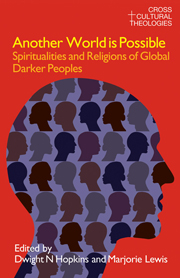Book contents
- Frontmatter
- Dedication
- Contents
- Acknowledgements
- Contributors
- Introduction
- Part I India
- Part II Japan
- 3 Recovering Jesus for Outcasts in Japan
- Part III Australia
- Part IV Hawaii
- Part V England
- Part VI South Africa
- Part VII Botswana
- Part VIII Zimbabwe
- Part IX Ghana
- Part X Cuba
- Part XI Jamaica
- Part XII Brazil
- Part XIII USA
- Endnotes
- Select Bibliography
- Index of Subjects
- Index of Names
3 - Recovering Jesus for Outcasts in Japan
from Part II - Japan
- Frontmatter
- Dedication
- Contents
- Acknowledgements
- Contributors
- Introduction
- Part I India
- Part II Japan
- 3 Recovering Jesus for Outcasts in Japan
- Part III Australia
- Part IV Hawaii
- Part V England
- Part VI South Africa
- Part VII Botswana
- Part VIII Zimbabwe
- Part IX Ghana
- Part X Cuba
- Part XI Jamaica
- Part XII Brazil
- Part XIII USA
- Endnotes
- Select Bibliography
- Index of Subjects
- Index of Names
Summary
“We have learned to see the great events of world history from below, from the perspective of outcasts.”
— Dietrich Bonhoeffer, Letters and Papers from Prison“The Suiheisha Declaration is our Bible for the unliberated Burakumin.”
— Imai Kazuichi, The Crown of ThornsSuffering and Liberation
The basic theme of this chapter is the suffering and liberation of outcasts in Japan. This theme is the natural outgrowth of my belief that our theological task in contemporary Japan is to reflect critically on the liberating activity of God in the midst of oppression, taking as our focus the concrete sociohistorical context of Japan's three million outcasts, the Burakumin. This chapter, therefore, seeks to analyze the suffering and pain historically experienced by the Burakumin and to discuss their situation as it relates to the biblical theme of liberation. The sole purpose of such theological reflection is to articulate the meaning of God's redemptive work in the anguished communities of Japan, thus conveying to the Japanese outcasts that their striving for freedom is not only consistent with their legitimate desires and expectations as human beings but also is itself the central theme of Christian faith.
I do not intend to imply by my specific focus on the suffering of the Burakumin that their victimization alone is worthy of meaning granted by Christian theology. In Japan other minorities are discriminated against in various ways—Korean residents, Ainu and Okinawan people, the physically and mentally handicapped, women, and so on.
- Type
- Chapter
- Information
- Another World is PossibleSpiritualities and Religions of Global Darker Peoples, pp. 33 - 50Publisher: Acumen PublishingPrint publication year: 2009

